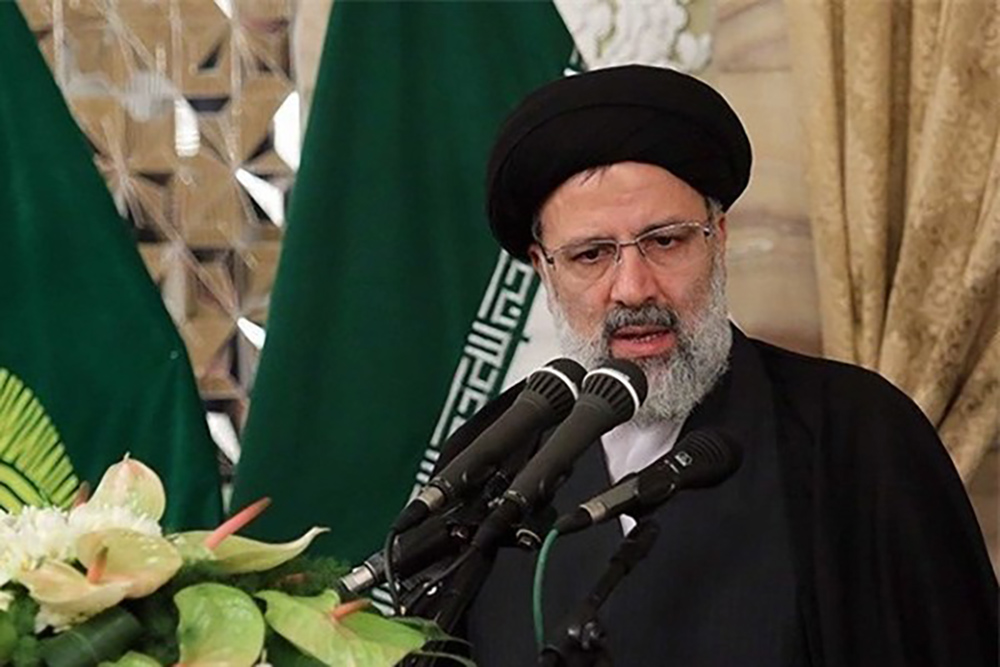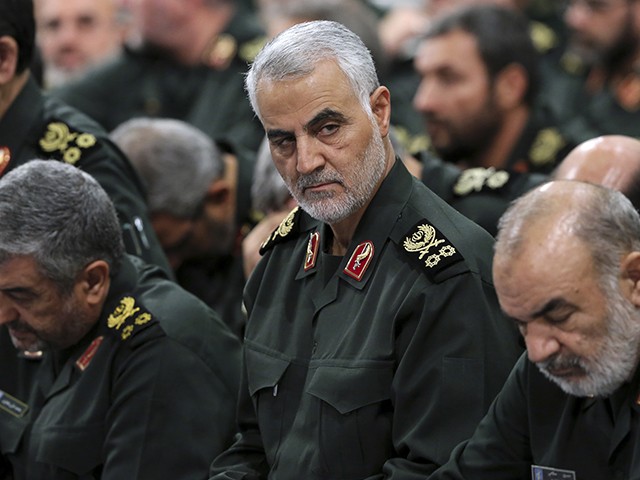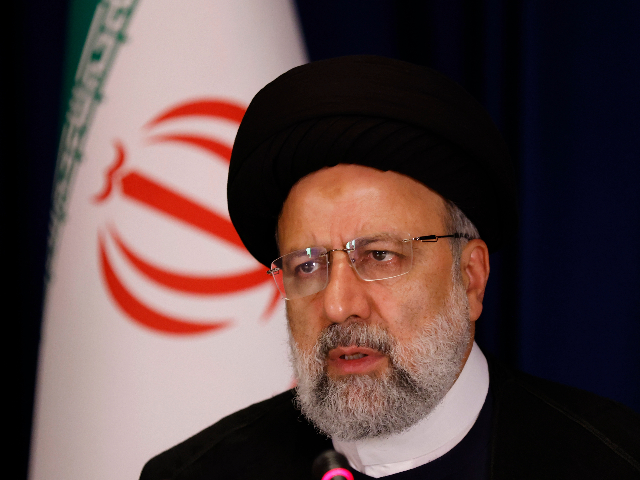|
Getting your Trinity Audio player ready...
|
ISIS Claims Responsibility for Bombing that Killed 84 During Suleimani Memorial in Iran
Edited by: Fern Sidman
On Thursday, it was reported that the Islamic State (ISIS) has claimed responsibility for a bombing attack in Kerman, Iran, which resulted in the death of 84 people. The terror group, notorious for its acts of depravity and violence, made the announcement through its official Telegram account, characterizing the assault as a “dual martyrdom operation.”
More scenes of chaos in Iran after several explosive devices were detonated at a ceremony at a cemetery marking the 2020 assassination of the country’s top commander, Qassem Soleimani. Officials in Iran believe the explosions were set by terrorists. #Iranblast #QassemSoleimani… pic.twitter.com/lCYqyuvF2X
— The Jewish Voice (@JewishVoice) January 3, 2024
The detailed account provided by ISIS outlines how two terrorists approached a memorial ceremony at the tomb of Major General Qassim Suleimani and detonated explosive belts strapped to their bodies in proximity to the grave of the late Iranian military officer, as was reported by the New York Times. Maj. Gen. Qassim Suleimani, widely revered and feared, was the mastermind behind an Iranian-led and funded alliance of Shiite groups spread across the Middle East. His assassination, four years ago in an American drone attack, marked a significant event that has continued to reverberate through the region, according to the NYT report.
ISIS, a Sunni Muslim organization, considers its mission to be the eradication of apostate Muslims, particularly targeting Shiites. Iran, predominantly Shiite and led by a theocratic government dominated by Shiite clerics is a prime target for the terror group. The NYT report said that the statement released by ISIS identified the two attackers as Omar al-Mowahid and Sayefulla al-Mujahid, individuals who carried out the attack in Kerman.
In this Sept. 18, 2016, file photo released by an official website of the office of the Iranian supreme leader, Revolutionary Guard Gen. Qassem Soleimani, center, attends a meeting in Tehran, Iran (Office of the Iranian Supreme Leader via AP, File).
The bombing in Iran is the latest in a series of ISIS-led assaults on the country, reflecting the group’s perception of Iran as an irredeemable sectarian foe, as was noted in the NYT report. Iran, in collaboration with a U.S.-led coalition, played a pivotal role in the defeat of ISIS in Syria and Iraq. Maj. Gen. Suleimani played a crucial role in establishing a network of Shiite militias to counter the terrorist organization and supported efforts by Syrian President Bashar al-Assad to combat ISIS.
The complexity of sectarian tensions in the region is underscored by ISIS’s repeated threats against Iran, with the group’s affiliate in Afghanistan, ISIS-Khorasan, explicitly targeting Iran over perceived polytheism and apostasy, according to the information provided in the NYT report.
Previous attacks by ISIS on Iran include the October 2022 shooting in Shiraz, where 13 people were killed, the twin attacks in June 2017 on Tehran that claimed 17 lives, and the September 2018 attack in Ahvaz, resulting in the deaths of 25 individuals.
President of Iran Ebrahim Raisi speaks during a news conference, Wednesday, Sept. 20, 2023, in New York (AP Photo/Jason DeCrow).
The Iranian authorities have asserted that they have thwarted at least a dozen more Islamic State attacks in the past. As was reported by the NYT, the ongoing threat from ISIS remains a significant challenge for Iran, exacerbating the already tense regional atmosphere.
Initially, some Iranian leaders had pointed fingers at Israel for the attack, raising concerns that the conflict in Gaza, where Israel was battling Hamas, a Palestinian ally of Iran, could escalate into a broader regional conflict. However, the NYT report said that Western officials expressed doubt about this theory, emphasizing Israel’s historical pattern of targeted operations against specific individuals or facilities.
American officials weighed in, suggesting that it was unlikely for the Islamic State’s intention to frame Israel for the bombings or instigate a wider war. Instead, the group may have seized an opportunity to strike its long-time enemy during a moment of vulnerability.
Iran responded to the attack by declaring a national day of mourning on Thursday, coinciding with the fourth anniversary of the death of Major General Qassim Suleimani. The terrorist leader, assassinated four years ago in a U.S. drone attack, is celebrated by many Iranians, especially those supportive of the government, as was noted in the NYT report. The symbolic nature of the attacks, occurring on this significant day, adds an extra layer of gravity to the situation.
Initially, Iranian officials had reported a death toll of 103, but Interior Minister Ahmad Vahidi revised the number to 84 on Thursday. The minister noted that the death toll might rise due to the severe condition of some of the injured. The report in the NYT said that a total of 284 people were wounded in the attack, with 220 still hospitalized in Kerman, many of whom were reported to be in stable condition or requiring minor surgeries. The aftermath of the Kerman bombings also heightens regional tensions in an already volatile part of the world.
The statement released by the Islamic Revolutionary Guards Corps, a powerful military-security apparatus in Iran, emphasized that the aim of the attack was to induce insecurity in the country and exact revenge on the nation’s love and devotion, particularly from the zealous young generation, to the martyred General Suleimani, according to the NYT report. General Suleimani, a top officer in the Revolutionary Guard Corps, headed the elite Quds Force, responsible for external operations.
Iranian leaders have vehemently condemned the attack, vowing to punish the perpetrators for this “blind and spiteful act.” The report noted that the timing of the assault, amidst the ongoing conflict in Gaza and unified Muslim support for the Palestinians, has raised eyebrows and led to speculation about the motives behind the attack.
The NYT report also indicated that Mick Mulroy, a former Pentagon official in the Trump administration, noted that there is “no love lost” between ISIS and Iran. However, he expressed surprise at the timing of the attack.
While the Islamic State did not specify the affiliate responsible for the attack, counterterrorism analyst Colin P. Clarke at the Soufan Group pointed towards ISIS-Khorasan (ISIS-K) as the likely perpetrator, according to the NYT report. He highlighted that ISIS-K has both the intent and capability to attack targets inside Iran, driven by their highly sectarian agenda that focuses on denigrating Shia Muslims as apostates.
The choice of the commemoration ceremony, a highly symbolic and sectarian target, aligns with ISIS-K’s strategy, particularly given General Suleimani’s significant role as the architect of the Tehran-led Shiite axis in the region, the NYT report said. The ceremony marked the fourth anniversary of General Suleimani’s assassination at Baghdad airport in January 2020, and similar events are held annually to honor the revered military leader.
Contradicting initial Iranian reports that suggested the bombs were placed in bags and remotely detonated, ISIS claimed responsibility for the attack, creating a stark contrast in narratives surrounding the attack. Tasnim, a semiofficial news agency, reported that the first explosion occurred at 3:04 p.m., with the second blast following 13 minutes later. According to the NYT report, IRNA, another semiofficial news agency, quoted a police spokesman stating that three police officers lost their lives while attempting to aid other victims.
As Iran mourns the loss of lives in Kerman, the nation braces for potential retaliation against those deemed responsible for this act of violence. The incident further underscores the complex geopolitical landscape of the Middle East and the ongoing threat posed by terrorist groups in the region.






